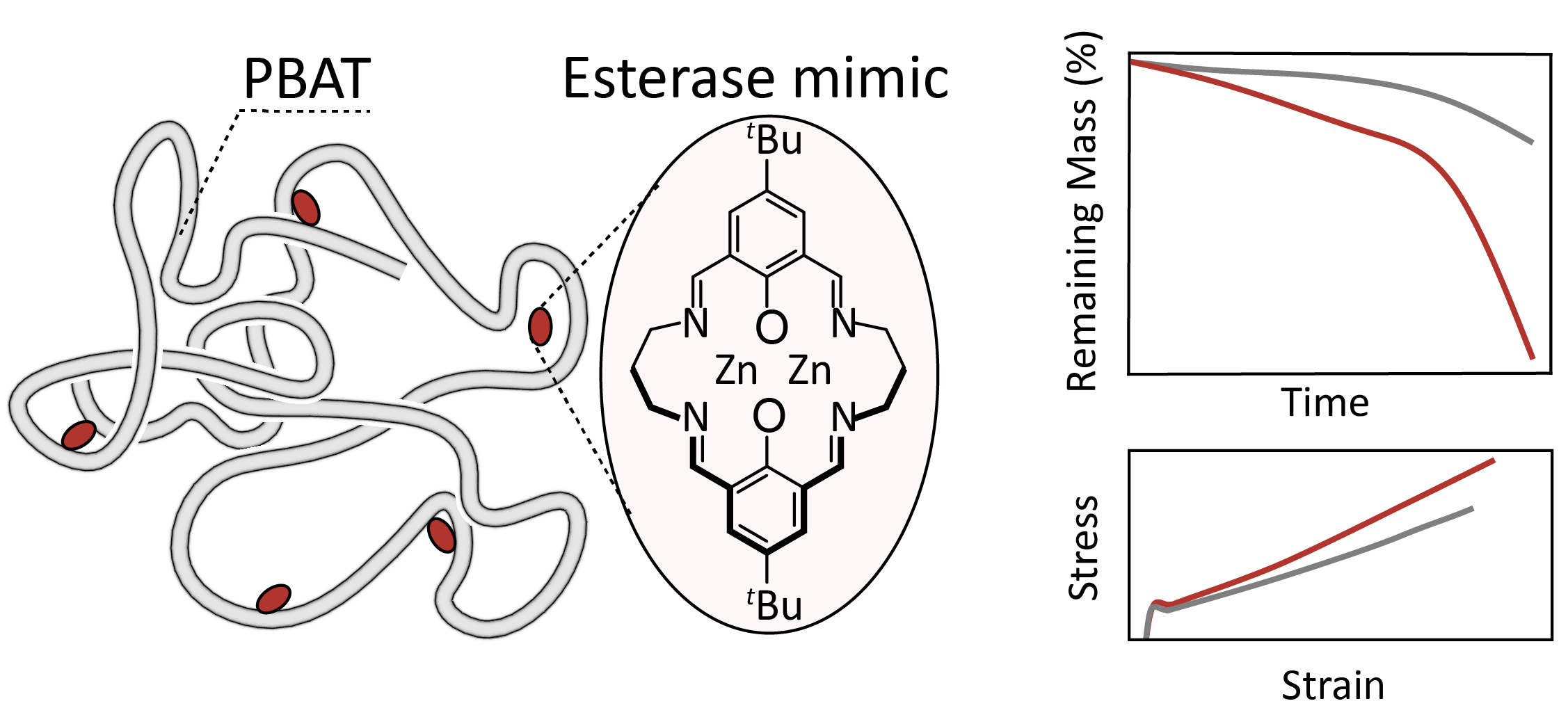2024 AIChE Annual Meeting
(403e) Embedding an Esterase Mimic inside Polyesters to Realize Rapid and Complete Degradation without Compromising Their Utility
In the face of the escalating global plastic pollution, considerable efforts have been devoted to the development of biodegradable plastics over the past decades, aiming to substitute persistent commodity plastics. However, the degradation rate of biodegradable plastics is remarkably slow in the environment. Developing biodegradable plastics with accelerated degradation under both composting and ambient conditions is important for the mass use of such materials. Current strategies to promote their degradation often compromise their utility. Here, we enhance the degradation properties of biodegradable plastics by embedding an esterase mimic inside the polyester without compromising its processing and mechanical properties. This esterase mimic contains a binuclear zinc site and catalyzes the depolymerization of poly(butylene terephthalate/adipate) (PBAT) with a turnover frequency (TOF) an order of magnitude higher than that of conventional additives (ZnO). With 1 wt% of this enzyme mimic embedded, PBAT exhibits a 3.7-fold enhancement of the degradation rate under composting conditions. Mechanistic investigation indicates that the binuclear zinc binding center polarizes the ester carbonyl group and increases hydroxide uptake, thus leading to faster degradation. Moreover, cytotoxicity studies confirmed that the PBAT/Zn2L composite maintains an equivalent level of biocompatibility to pure PBAT. This work provides a possible approach to designing polymers that meet requirements of stability during use and fast degradation after use.


